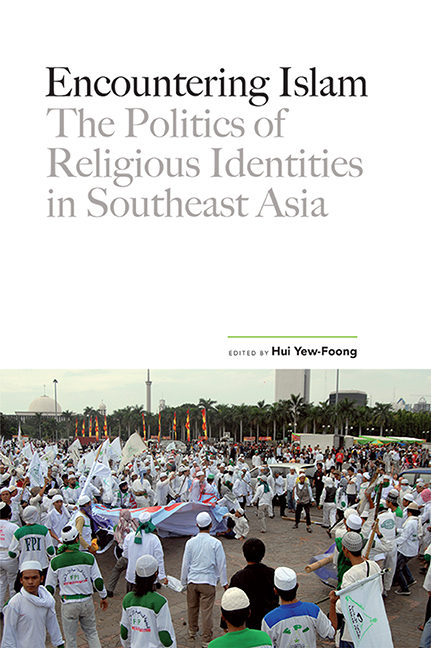Book contents
- Frontmatter
- Contents
- Acknowledgements
- Contributors
- Part I Introduction
- Part II Islam across Borders
- 2 Religious Elites and the State in Indonesia and Elsewhere: Why Takeovers are so Difficult and Usually Don't Work
- 3 “I was the Guest of Allah”: Modern Hajj Memoirs from Southeast Asia
- 4 The Aurad Muhammadiah Congregation: Modern Transnational Sufism in Southeast Asia
- Part III Malaysia
- Part IV Indonesia
- Part V Muslim Minorities
- Index
4 - The Aurad Muhammadiah Congregation: Modern Transnational Sufism in Southeast Asia
from Part II - Islam across Borders
Published online by Cambridge University Press: 21 October 2015
- Frontmatter
- Contents
- Acknowledgements
- Contributors
- Part I Introduction
- Part II Islam across Borders
- 2 Religious Elites and the State in Indonesia and Elsewhere: Why Takeovers are so Difficult and Usually Don't Work
- 3 “I was the Guest of Allah”: Modern Hajj Memoirs from Southeast Asia
- 4 The Aurad Muhammadiah Congregation: Modern Transnational Sufism in Southeast Asia
- Part III Malaysia
- Part IV Indonesia
- Part V Muslim Minorities
- Index
Summary
The rising profile of Southeast Asia as a prosperously developing and yet passionately Islamic region necessitates a study of the dynamic interaction between its domestic political imperatives and transnational variables. While transnational factors in themselves may be insufficient to explain the shifting contours of contemporary Islam in Southeast Asia, their presence has arguably been crucial in the continual flourishing and resilience of autonomous Islamism in the face of relentless pressure from the state. Although Islamist movements have over the years become more focused on domestic issues and discourses, none has denied the utility and need to retain transnational dimensions. Notwithstanding the vast diversity of Muslim populations worldwide, as long as the concept of an ummah (global Muslim community) is given credence, the emergence of transnational political entities predicated on relations among the Muslim brethren if not among Islamists, cannot be underestimated.
This chapter seeks to address Sufism as another side of transnational Islamism which has flourished without attracting as much attention as has the modernist-reformist variants of Wahhabi-Salafi doctrinal parentage, some of whose protagonists have expressed aversion to Sufism as a kind of “Islam which is not Islam” (Howell 2001, p. 706). The place of Sufism within the rubric of Islamism and Islamist literature has been made uncertain by the hostility shown to it by Islamist ideologues themselves. For example, Abul A'la Maududi (d. 1979), founder of Jamaat-i-Islami party in the Indo-Pakistan subcontinent, exhorted aspiring Muslim revivalists to “shun the language and terminology of the Sufis; their mystic allusions and metaphoric references, their dress and etiquette, their master-disciple institution and all other things associated with it” (Maududi 1981, p. 113). The present contribution argues that Sufism as an Islamic revivalist movement in Southeast Asia has thrived amidst manifold challenges presented by globalization, lack of sympathy from Islamist quarters, and resentment in the case of Malaysia, from a state wary of the possible threat that Sufi groups pose to its self-acclaimed legitimacy as guardians of Islam in a postcolonial national setting. Our object of investigation is the Aurad Muhammadiah congregation (Jemaah Aurad Muhammadiah), which has spread its wings throughout Southeast Asia through several formal and informal organizations, most notably Darul Arqam, banned in Malaysia since 1994.
- Type
- Chapter
- Information
- Encountering IslamThe Politics of Religious Identities in Southeast Asia, pp. 66 - 100Publisher: ISEAS–Yusof Ishak InstitutePrint publication year: 2012



